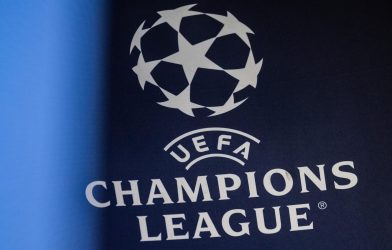The UEFA Champions League, commonly known as the Champions League, stands as the pinnacle of European club football. Since its inception, the competition has grown in prestige, offering a platform where the continent’s best teams clash in a bid for supremacy.
The Champions League began life as the European Champion Clubs’ Cup, often called the European Cup, in 1955. The idea was conceived by Gabriel Hanot, a journalist for the French newspaper L’Équipe, inspired by the success of the South American Championship of Champions. The inaugural tournament featured 16 teams, including champions from various European leagues.
Real Madrid dominated the early years, winning the first five editions from 1956 to 1960. This era firmly established the competition’s prestige and showcased the burgeoning talent across Europe. The tournament format was straightforward knockout rounds, which added to the drama and excitement.
In 1992, the competition underwent a significant transformation, rebranding as the UEFA Champions League. This change was more than cosmetic; it introduced a round-robin group stage preceding the knockout rounds, thus guaranteeing more matches and increasing revenue for participating clubs. The move aimed to capitalize on the growing television audience and the increasing commercialization of football.

The 1992-93 season saw Olympique de Marseille become the first winners of the rebranded tournament, defeating AC Milan in the final. This era marked the beginning of greater competitiveness and diversity in the list of champions, with clubs from various countries lifting the trophy.
The Champions League continued to evolve, with UEFA expanding the tournament to include more teams from the top leagues. The late 1990s and early 2000s saw the dominance of clubs like Manchester United, Bayern Munich, and Real Madrid, with Real Madrid notably winning three consecutive titles from 2016 to 2018.
This period also highlighted the global reach of the Champions League, as matches were broadcast worldwide, capturing the imagination of football fans across continents. The competition’s anthem, with its distinctive and majestic tones, became synonymous with elite football nights.
The history of the Champions League is replete with unforgettable moments and legendary performances.
The 1999 final, where Manchester United scored twice in injury time to defeat Bayern Munich, is often cited as one of the greatest comebacks in football history. Another iconic moment came in 2005, when Liverpool overturned a 3-0 halftime deficit against AC Milan to win on penalties, in what is now known as the "Miracle of Istanbul."

The competition has also been a stage for footballing legends. From Alfredo Di Stéfano and Ferenc Puskás in the early years to modern icons like Lionel Messi and Cristiano Ronaldo, the Champions League has consistently showcased the best talent the sport has to offer. Ronaldo, in particular, holds the record for the most goals scored in the competition, cementing his legacy as one of the greatest players in Champions League history.
Today, the UEFA Champions League is the most prestigious club competition in the world. It features 32 teams in the group stage, drawn from Europe’s top leagues, and culminates in a grand final that captures the attention of millions. The financial rewards and global exposure associated with the tournament have made it a crucial aspect of modern football.
The Champions League continues to innovate, with UEFA frequently adjusting formats and rules to enhance competitiveness and viewer engagement. As football evolves, the Champions League remains a beacon of excellence, symbolizing the pinnacle of club football achievement.
The UEFA Champions League’s journey from its humble beginnings as the European Cup to its current status as a global footballing spectacle is a testament to its enduring appeal and significance. It has provided a platform for the greatest talents, unforgettable matches, and dramatic moments that have etched themselves into the annals of football history. As we look to the future, the Champions League will undoubtedly continue to be the ultimate arena where football legends are made.














